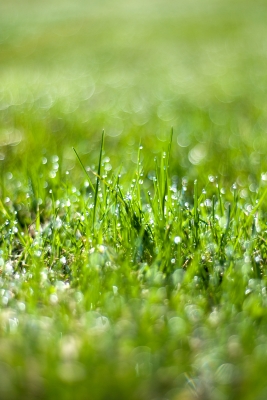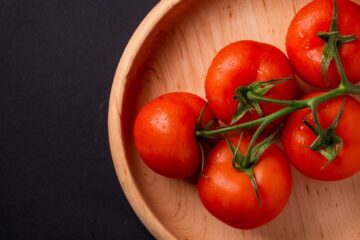 At the end of winter and beginning of spring, we often feel sluggish and heavy like we are coming out of hibernation. Kapha in our bodies is at its peak. It’s good to know this so you can ward against the problems that can come with it such as allergies (especially hay fever) and head colds.
At the end of winter and beginning of spring, we often feel sluggish and heavy like we are coming out of hibernation. Kapha in our bodies is at its peak. It’s good to know this so you can ward against the problems that can come with it such as allergies (especially hay fever) and head colds.
Kapha is one of the three doshas in the body. The doshas – vata, pitta and kapha – are the bio-energetic principles which govern all the physiological and psychological aspects of one’s life. We are born with our own individual ratio of these doshas and we only remain in health if this balance is kept.
Kapha represents the elements water and earth in the body. This means its characteristics are: slow, heavy, oily, smooth, cold, sweet, steady and soft. Usually, when kapha is in balance, it is an amazing support for the body and mind. It helps immunity, allows for growth, provides moisture and lubrication, and provides strength to the body and stability to the mind.
The temperature around us, the moisture content in the air, the presence or otherwise of wind and the amount of light have an undeniable effect on our bodies and to a certain extent our minds. In Ayurveda, for over 5000 years, it has been noted that certain prevailing weather conditions affect the doshas in different ways. There is an important principle of like increases like, so when the qualities of the weather are similar to those of the dosha, the dosha increases. During the winter, the kapha builds up in our bodies. As spring arrives and it gets warmer (hopefully!), we need to shed this ‘winter insulation’ so we don’t fall foul to the problems of excess kapha.
Examples of these kapha problems are:
- excessive mucous (for example nasal discharges, sinusitis)
- nausea and poor digestion
- water retention and swelling
- lassitude, heaviness, depression
- weight gain
How can you keep kapha in check at the beginning of spring?
Diet
- Keeping kapha in its correct place is easy if you remember the key Ayurvedic principle of ‘like increases like, and opposites decrease’. The qualities of kapha – cold, heaviness, oiliness, sweet – should be limited. Foods with these qualities include dairy, wheat, meat (especially red meat) and sugars (especially refined sugars). Stay away from oily, cold and frozen food.
- Eat lighter foods, those which are easy to digest. Increase your intake of green vegetables (the bitter taste indicates these are good for reducing kapha – think ‘opposite’ of sweet), barley (one of the few dry rather than oily grains).
- Kapha tends to slow down the digestion so we need to stoke up the power of digestion. Cook with warming spices (cumin, coriander, asafoedita – hing, turmeric, dill, fennel, tarragon).
Lifestyle
- Exercise more than usual but don’t overdo it. A good spring clean can also have an energising effect!
- Exfoliate with a dry powder before your shower, barley flour is the best for this but can you can also use wheat flour as barley flour is hard to get your hands on.
- Invigorate your mind by engaging it in something new, learn something, read a more demanding book, try some non-fiction, do some crosswords or sudoku.
Remedies
Ayurveda has some amazing herbal remedies, all of which have specific effects on each of the three doshas. Here are some good ones for reducing excess kapha:
- Triphala (combination of three wonderful rejuvenative tonifying herbs which pacify all three doshas)
- Trikatu (a combination of black pepper, ginger and long pepper), an excellent digestive stimulant and kapha reducer
- Vasaka (adhatoda vasica) or shitopaladi (these are great if you are suffering from excess mucus)
- Try a simple home remedy of fresh or dried ginger with hot water.
Listen to your body, it’s full of wisdom. Take care of yourself.
Author: Kate Siraj, Ayurvedic Practitioner, BSc Ayurveda, MChem (Oxon), MAPA.
© The Ayurveda Practice
Photo thanks to FreeDigitalPhotos.net



5 Comments
Smoothies and juices – choose wisely - The Ayurveda Practice · March 16, 2016 at 12:29
[…] winter turns to spring, nature provides spring greens, spinach, cucumbers, watercress, radish leaves and lettuces. […]
Enjoy your Christmas roast with impunity this winter - The Ayurveda Practice · December 14, 2016 at 10:24
[…] today – low fat, low carbohydrate and salads – is actually one that works very well in spring but not so well in winter. We naturally crave warm, heavier, oilier foods which ground us and keep […]
Banish sugar cravings - The Ayurveda Practice · March 17, 2017 at 14:05
[…] honey which is sweet but astringent and heating, which makes it great for vata and kapha and for scraping fat and mucous from the body. Honey is the only sweetener recommended for […]
Women, love your cycle (and men, it REALLY helps to know) - The Ayurveda Practice · March 16, 2018 at 13:18
[…] have rest-activity-rest cycles; most notably our daily circadian rhythms and less obviously yearly seasonal rhythms. These allow us to do activity supremely well when we are active thanks to regular and deep-seated […]
Use your clever early warning system - The Ayurveda Practice · December 6, 2021 at 22:21
[…] the very start of a kapha imbalance. You go out to dinner with some friends, you eat a (lovely) heavy kapha-increasing meal […]
Comments are closed.